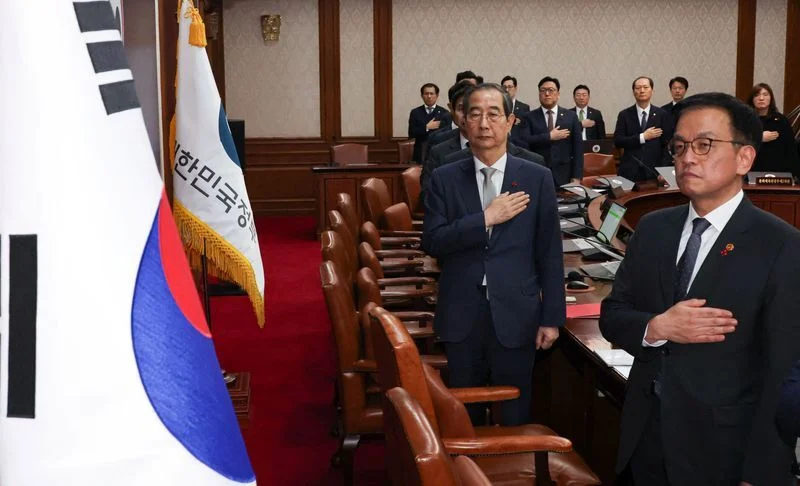
A South Korean court has started to review Yoon’s impeachment
The Constitutional Court of South Korea started examining President Yoon Suk Yeol’s impeachment on Monday due to his declaration of martial law on December 3. The court will decide whether to remove Yeol from office as investigators question him this week on criminal accusations.
Spokesman Lee Jean announced at a news conference that the court’s six justices will meet on Saturday to discuss plans for examining the impeachment by the opposition-controlled parliament, and that the court will hold its first public hearing on December 27.
The court can determine whether to restore Yoon or remove him from office within a maximum of six months. Lee stated that among other things, the first hearing will be “preparatory” in order to confirm the case’s main legal issues and the schedule.
She stated that Yoon is not obliged to go to the hearing.
It took the court three months to rule in favor of removing then-President Park Geun-hye from office in 2017 after she was impeached for misusing her position’s authority.
Insurrection charges against Yoon and several high-ranking officials are potentially possible due to the brief martial law.
In relation to the charges, a team comprising the defense ministry, police, and an anti-corruption agency is scheduled to summon Yoon for interrogation at 10 a.m. (0100 GMT) on Wednesday, a police official told Reuters.
According to Yonhap news, the presidential security service declared it was not in a position to accept the summons for Yoon’s appearance. Additionally, the summons was sent by expedited registered mail, according to an anti-corruption organization.
In his first bid for president, Yoon, who was a prosecutor by profession, appointed Kim Hong-il, a former prosecutor, to head a group of lawyers working on the criminal investigations and the impeachment review, according to local media. Kim was not immediately available for comment.
Under the leadership of acting President Han Duck-soo, the administration has persisted in its efforts to reassure foreign businesses and partners, and political parties have committed to working together to calm the situation.
Top financial regulators, the governor of the Bank of Korea, and the finance minister met early Monday and agreed to monitor the financial and foreign exchange markets continuously.
Markets and diplomatic allies of South Korea were alarmed by Yoon’s unexpected imposition of martial law and the resulting political unrest, as they questioned the nation’s capacity to dissuade nuclear-armed North Korea.
Getting Ready for Trump
The martial law fiasco has also caused harm at a time when South Korea has to be getting ready for the second Donald Trump administration in the United States, the nation’s largest ally, according to lawmakers.
Floor leader of the ruling People Power Party Kweon Seong-dong and Finance Minister Choi Sang-mok talked about addressing economic issues, such as the increased uncertainty for the trade-dependent nation brought about by Trump’s promise to raise tariffs.
Trump’s appointment of his former intelligence chief to lead special missions, including North Korea, was hailed by opposition Democratic Party leader Lee Jae-myung as a commitment to talks aimed at reducing tensions.
According to Foreign Minister Cho Tae-yul, Richard Grenell’s appointment suggested that North Korea would rank among Trump’s top objectives. Trump had three meetings with Kim Jong Un, the leader of North Korea, during his first term.
After making significant gains the week before the impeachment, the benchmark KOSPI index (.KS11) saw a decline on Monday as traders booked profits amid a reduction in political unpredictability.
Yoon’s ruling party was rocked by the impeachment vote on Saturday, which was approved by at least 12 members. On Monday, the party’s chairman, Han Dong-hoon, announced his resignation.
All Categories
Recent Posts
Tags
+13162306000
zoneyetu@yahoo.com



